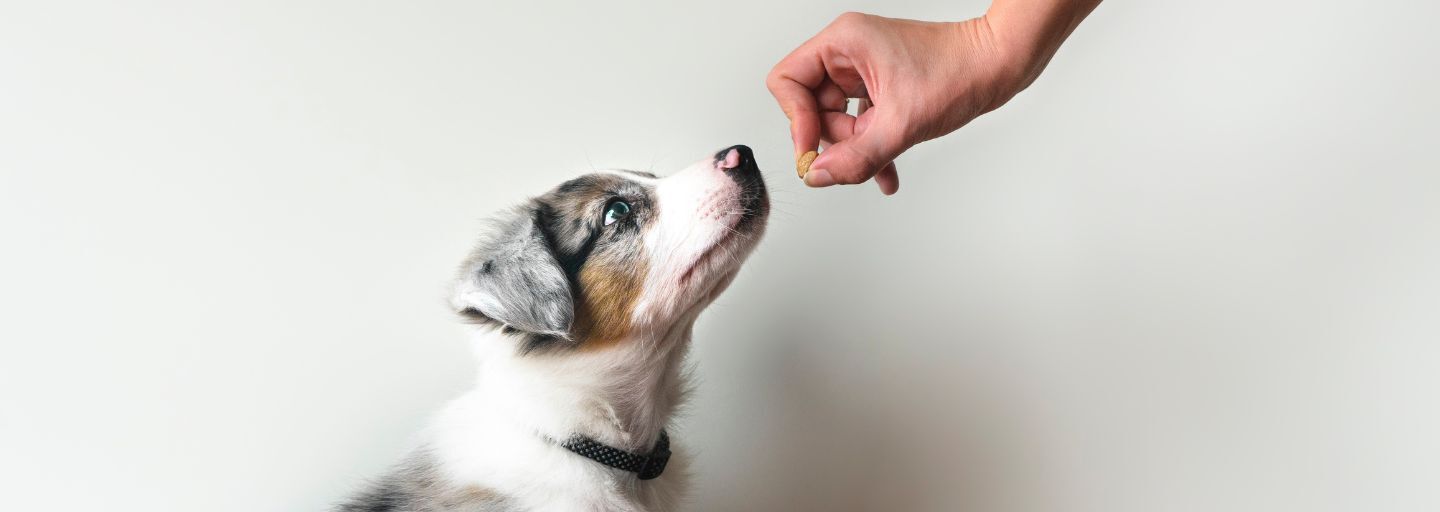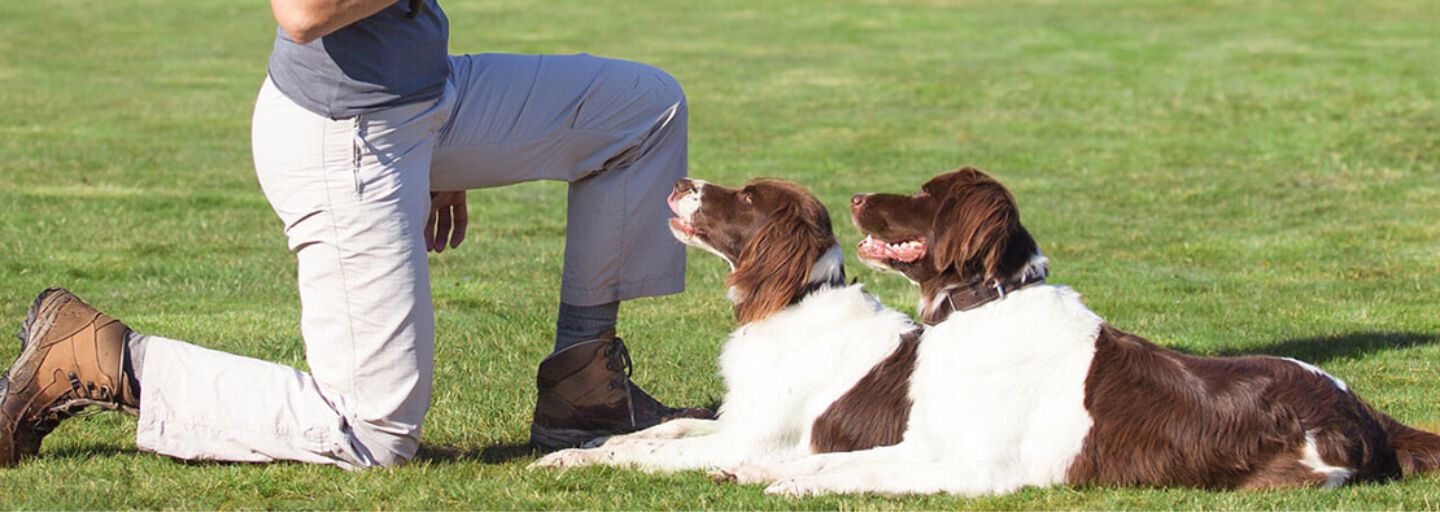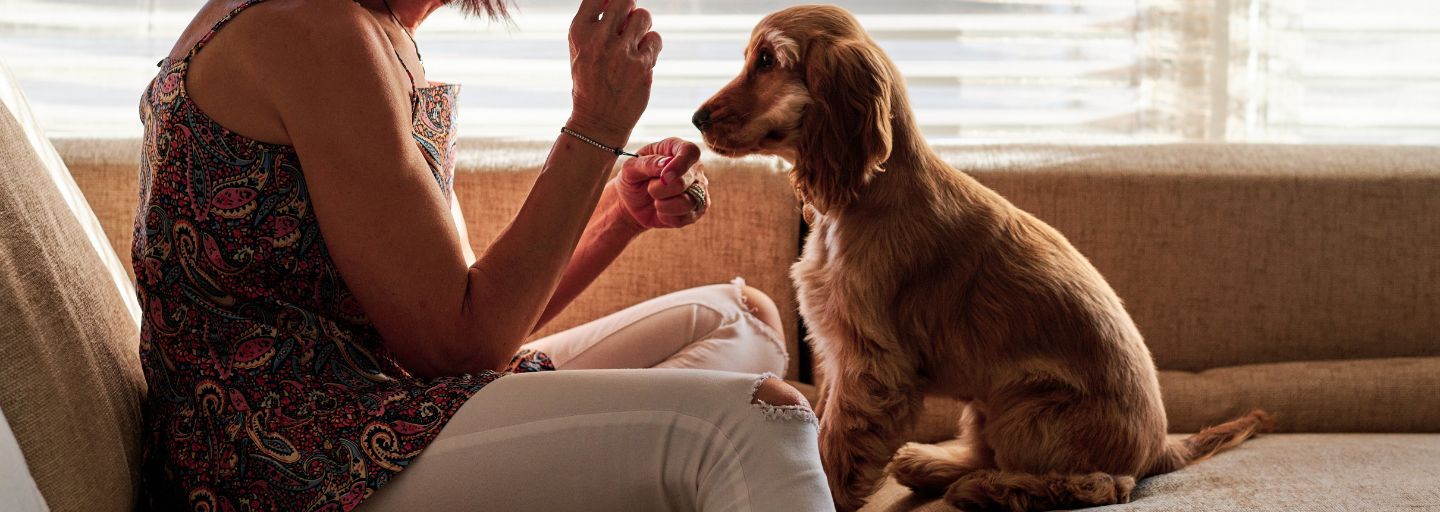Teaching your puppy how to appropriately interact, behave and live in your world is a vital aspect of becoming a pet parent. Companion animals are not born knowing the rules of society or even in your home. They don’t know the guidelines of playing with other animals, or what you classify as ‘good’ behaviour or ‘bad’ behaviour. To animals, all behaviours are just behaviours. Some are repeated if they are reinforced, and some behaviours will decrease in frequency and effort if they prove to be useless and don’t work out to be beneficial to them.
Social skills
It's important to correctly socialise puppies to new experiences for the rest of their lives, but in particular when they are between 3 weeks to 6 months of age. A good breeder or foster carer will start the gentle exposure for you before your puppy comes home. Their first big learning period begins at about three weeks, when their eyes and ears first open and they start to explore the big wide world around them. The next big jump is anywhere between 7-16 weeks, which confusingly, is the same time your vet will tell you to keep your puppy away from public places while vaccinations take effect. But even so, there are ways around this apparent contradiction to ensure your puppy grows into a well-adjusted, sociable dog.
Developmental calendar
- Invite people to your home to help your puppy get used to people of different sexes, ages, heights, builds and races. Encourage them to wear different types of clothing. Arm everyone with toys and treats!
- Visit friends with friendly calm dogs that are up to date with their vaccinations and also ask them to come over to your home.
- Well run puppy preschools will generally offer supervised and positive interactions and play times with other puppies in the class. They also teach your puppy that sometimes puppies are just ‘there’ and no interaction occurs, which is also important.
- Take your pup out in the car for short trips. Not only does this get puppies used to car travel, but also gives them the chance to see the world. It also gets them used to loud motorbikes, heavy vehicles, sirens etc.
- Socialisation sounds can be found on YouTube and can be a helpful training aid.
- Think about everything your puppy may encounter in life and write a check-list. Then cross off each item as your puppy encounters and accepts it.
- Remember, don't do anything as a one off. Repeated slow and positive exposure is essential for appropriate socialisation.
- Ensure that you have been training your puppy around the home (or even when being carried in your arms) to tolerate wearing their collar and also what their very lightweight puppy leash feels like when they are safely clipped on.
After their second vaccination you can start to take your puppy to places ensuring that you stick to concrete areas or disinfected surfaces, ensuring to stay away from heavily dog populated grass areas (parks), any unpicked up faeces or stagnant water puddles.
Actions and reactions
Whenever your puppy encounters anything new, act nonchalant as if there's nothing to worry about. Try not to be too anxious or nervous yourself. Your puppy will pick up on your signals and think there is something to be concerned about. Lots of verbal praise, positive interactions, a bag of tasty treats, and a calm positive attitude is all you need.
Out and about
Once your puppy's vaccinations are completed (10 to 12 weeks), it's time to step things up a gear.
- Walk your puppy on the lead along pavements in quiet streets, SLOWLY building up to busier pedestrian populated and traffic areas.
- Visit dog-friendly shops, parks, dining areas and other recreational spaces.
- Take your puppy to a beach (first checking the local regulations) and as many other environments as you can think of, from construction sites to, urban parks, sporting grounds and bush walks.
- Again, remember to repeat the experiences whenever possible and ensure that your puppy is having a good time (otherwise accidental sensitisation can occur).
- Train your puppy through positive reinforcement to respond to their name. Make sure you set them up for success and start out in low distraction and quiet areas in and around the home and slowly build up the distractions in your training sessions, lowering your expectations when you are making learning things more challenging for your young pup.
- Never shout their name if you are angry - puppies must associate their names with good things. Responding to your dog in a forceful or angry manner will most likely train them to avoid you under specific situations.
- Make sure all family members and friends are consistent with your training requirements. Be clear with what you are trying to train the puppy in a bid to remove too much confusion for everyone involved. When you are not sure if you are doing things correctly, please seek the assistance of a qualified training professional.
- Joining a well run and reputable puppy class will provide you with many foundations skills and guidance to help you and your puppy on the right track for a beautiful life together with understanding and trust.







